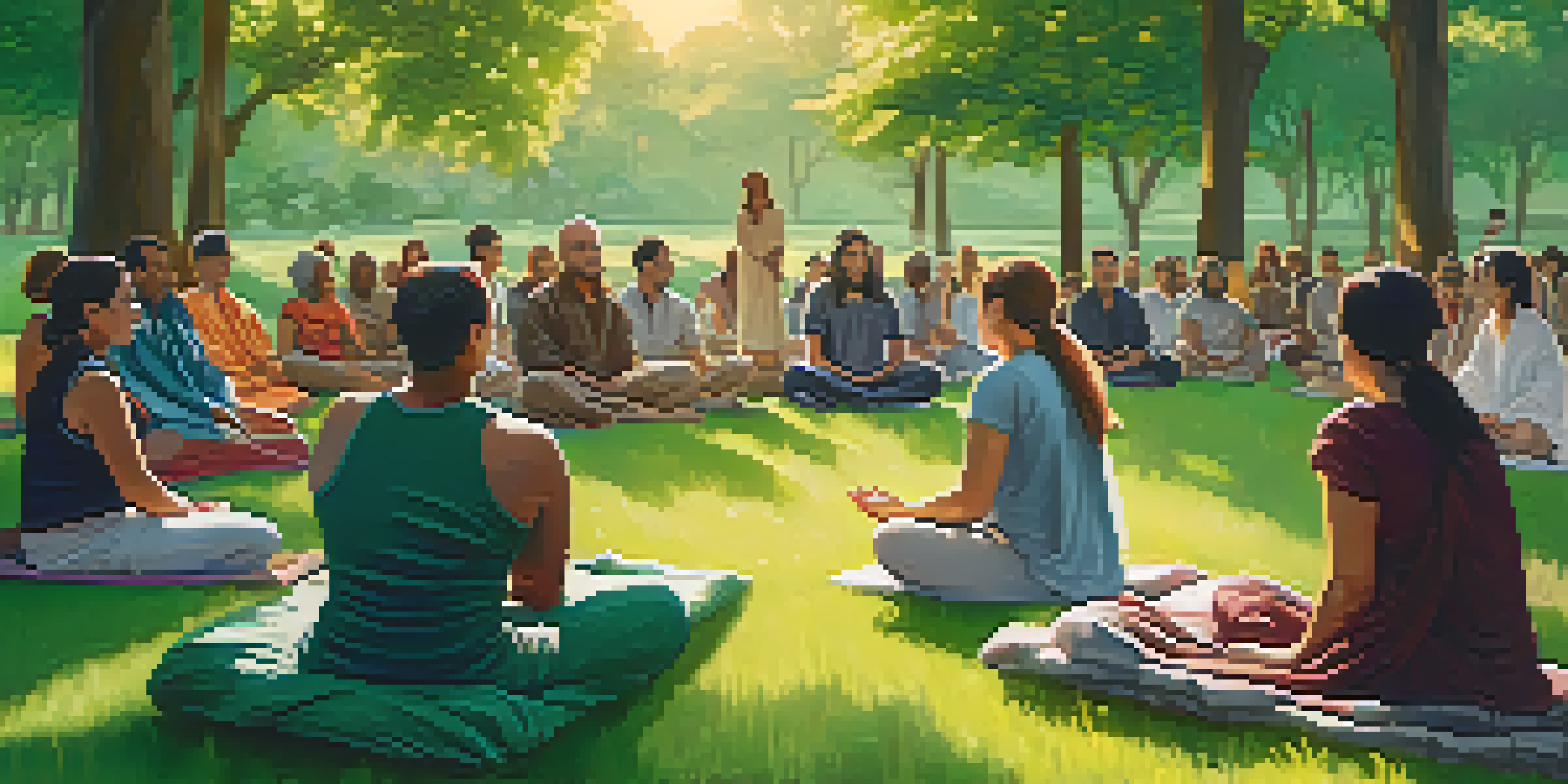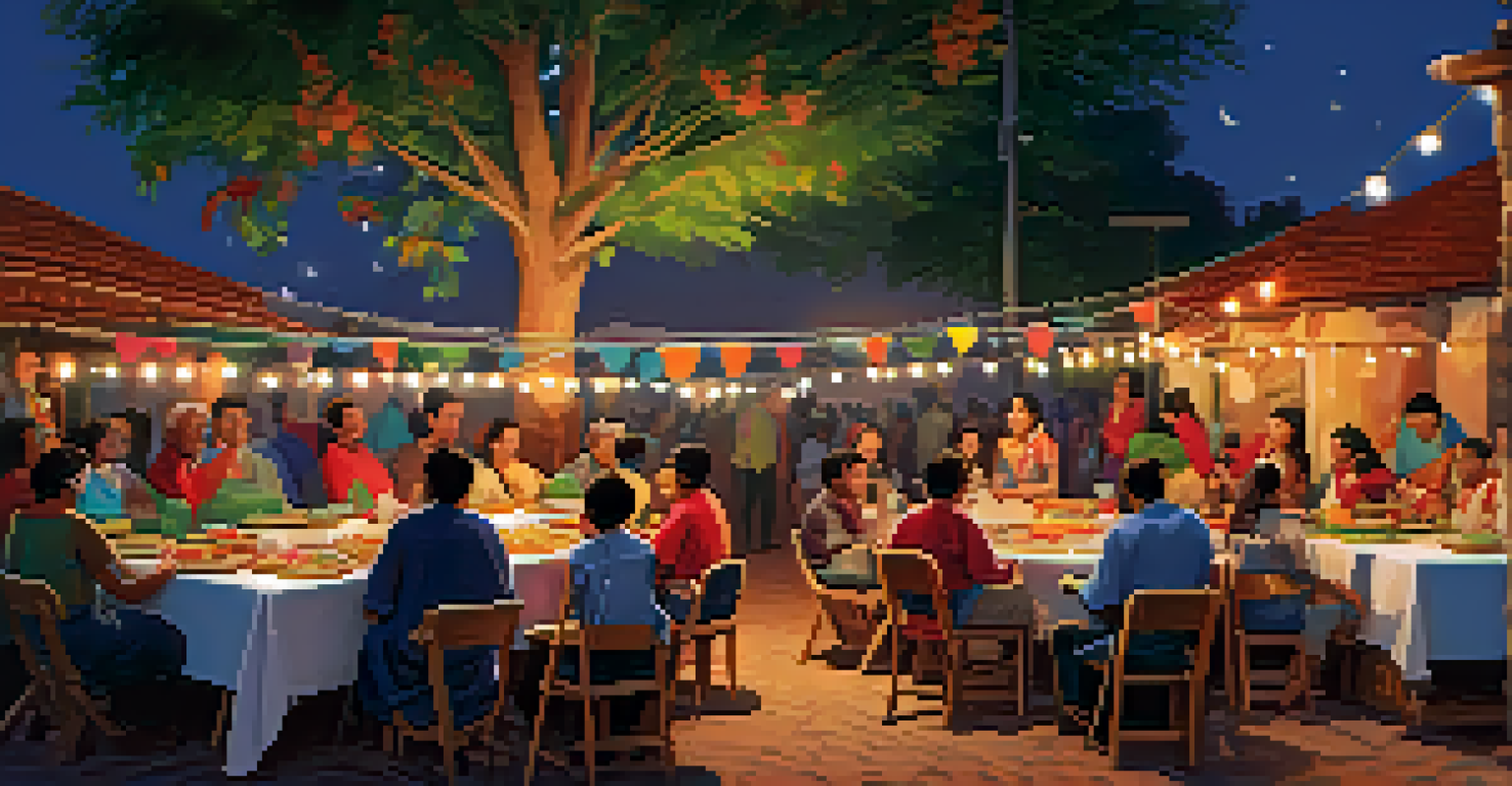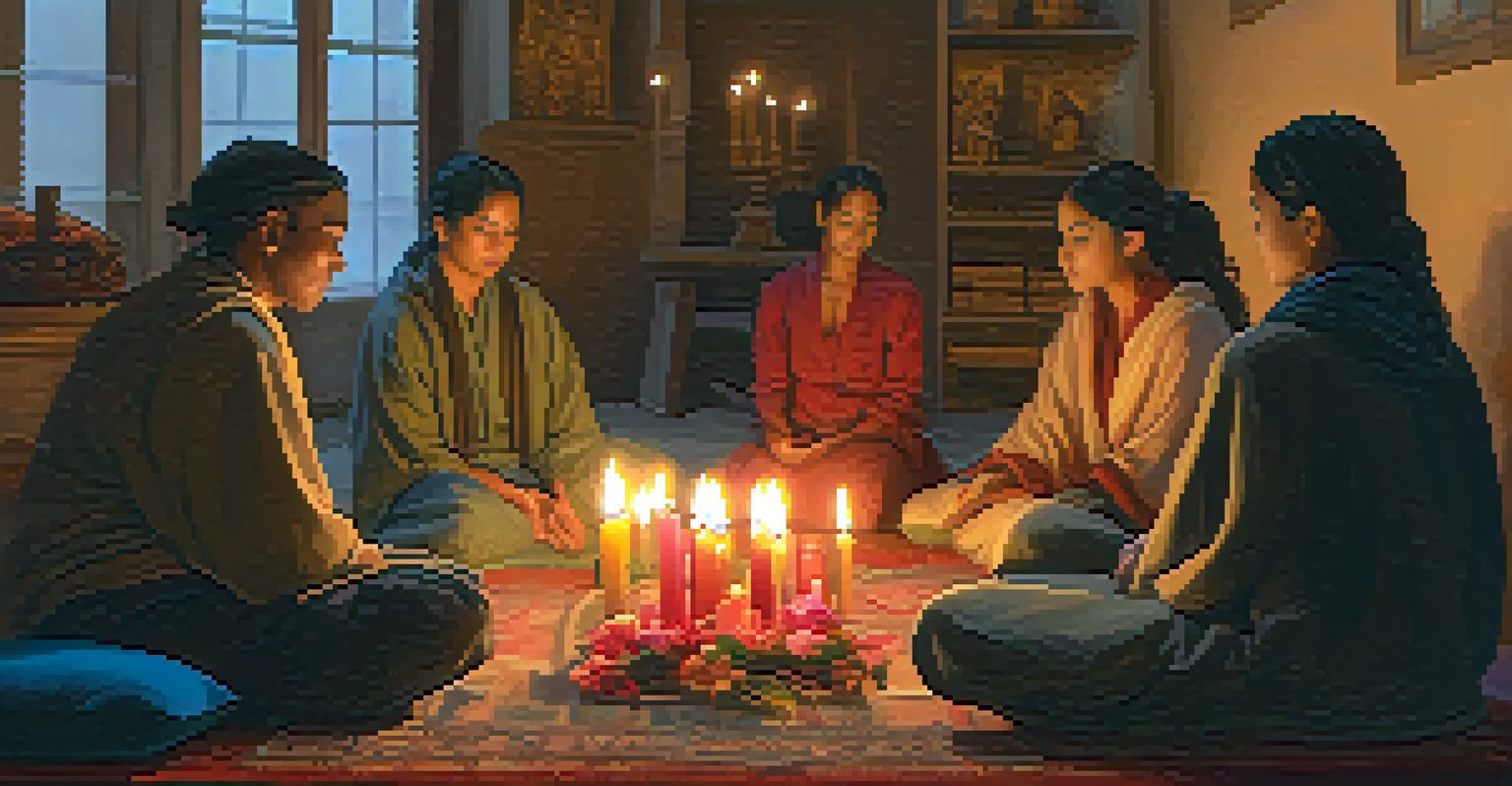The Importance of Shared Rituals in Spiritual Community Life

Understanding Shared Rituals in Spiritual Contexts
Shared rituals are collective activities that hold spiritual significance for a community. They can include ceremonies, prayers, or even communal meals that foster a sense of belonging. These rituals are not just traditions; they create a shared language and experience that unite individuals in their spiritual journeys.
Rituals are the formulas by which harmony is restored.
Think of shared rituals like a favorite family recipe passed down through generations. Just as families bond over preparing and enjoying a meal together, spiritual communities deepen their connections through these meaningful practices. It’s in these moments that members feel a part of something larger than themselves.
By participating in shared rituals, individuals often find a sense of purpose and identity within their spiritual community. It’s a way of saying, 'I belong here,' and this sense of belonging can be incredibly empowering.
The Role of Rituals in Building Community Bonds
Rituals serve as a glue that binds community members together, fostering trust and intimacy. When people come together to participate in a shared experience, they often find common ground that transcends differences. This shared participation can help break down barriers and create a welcoming environment.

For example, think about a group of friends who gather every week for a meditation session. Over time, the act of meditating together creates a sense of familiarity and support among them. This shared commitment to spiritual growth strengthens their individual practices and deepens their connections.
Rituals Foster Community Connection
Shared rituals create a sense of belonging and unity among individuals, strengthening their spiritual ties.
Moreover, communal rituals often encourage open dialogue and sharing of personal experiences. This leads to a more profound understanding and empathy among members, resulting in a holistic sense of community.
Rituals as a Source of Comfort and Stability
In times of uncertainty or distress, shared rituals can provide much-needed comfort and stability. The predictability of these practices can be grounding, offering a sense of normalcy amidst chaos. They remind individuals that they are part of a greater whole, providing solace in difficult times.
The beauty of ritual is that it creates a space where we can connect with each other and with something greater than ourselves.
Consider how many people turn to prayer or meditation during stressful periods. By engaging in these communal practices, they not only find personal peace but also connect with others who are navigating similar challenges. This sense of shared experience can alleviate feelings of isolation.
Ultimately, rituals create safe spaces for individuals to express their emotions and support one another. This shared vulnerability fosters resilience within the community, helping everyone navigate life’s ups and downs together.
Rituals as a Means of Cultural Transmission
Shared rituals are vital for passing down cultural values and spiritual teachings. Through these practices, communities can preserve their heritage while nurturing the next generation. This continuity fosters a sense of identity and pride among members.
Imagine a community that gathers annually to celebrate a traditional festival. Each year, members share stories, songs, and customs, reinforcing their collective history and values. This not only educates younger generations but also strengthens the ties between older and younger members.
Rituals Provide Comfort in Distress
In challenging times, communal rituals offer stability and solace, reminding individuals of their connection to a larger community.
By participating in these rituals, individuals become active participants in their culture, contributing to its vibrancy and relevance. It’s a way of ensuring that the essence of the community is not lost over time.
The Transformative Power of Collective Experiences
Shared rituals have the power to transform individuals and the community as a whole. When people come together for a common purpose, they often experience a shift in perspective or understanding. This transformation can lead to personal growth and a more profound connection to the community.
Think about the impact of a communal prayer or meditation session. Participants often leave feeling rejuvenated and inspired, having connected with something greater than themselves. This shared energy can be contagious, motivating others to engage more deeply in their spiritual practice.
As individuals undergo personal transformations, the community benefits as well. The collective growth creates a dynamic environment where everyone is encouraged to evolve and explore their spirituality.
Creating Inclusive Rituals for Diverse Communities
In today’s multicultural world, it’s essential to create inclusive rituals that resonate with diverse community members. These rituals should be adaptable and reflective of the varied backgrounds and beliefs within the group. Inclusivity fosters a sense of belonging for everyone involved.
For instance, a spiritual community might blend different cultural practices into their rituals, celebrating diversity while honoring each tradition. This not only enriches the experience but also promotes understanding and respect among members.
Inclusivity Enriches Spiritual Practices
Creating inclusive rituals that reflect diverse backgrounds fosters understanding and strengthens community bonds.
By embracing inclusivity in rituals, communities can create a space where everyone feels valued and heard. This approach strengthens the fabric of the community, making it more resilient and unified.
The Future of Shared Rituals in Spiritual Communities
As society evolves, so too will the rituals that bind communities together. The future of shared rituals may involve innovative practices that incorporate technology or new forms of expression. This evolution can help keep spiritual communities relevant and engaging for younger generations.
For example, virtual gatherings have become increasingly popular, allowing members to connect regardless of geographical barriers. These modern rituals can complement traditional ones, creating a hybrid experience that meets the needs of a diverse membership.

Ultimately, the essence of shared rituals—creating connection, fostering growth, and celebrating community—will remain timeless. As communities adapt, they will continue to find meaningful ways to engage and uplift one another.